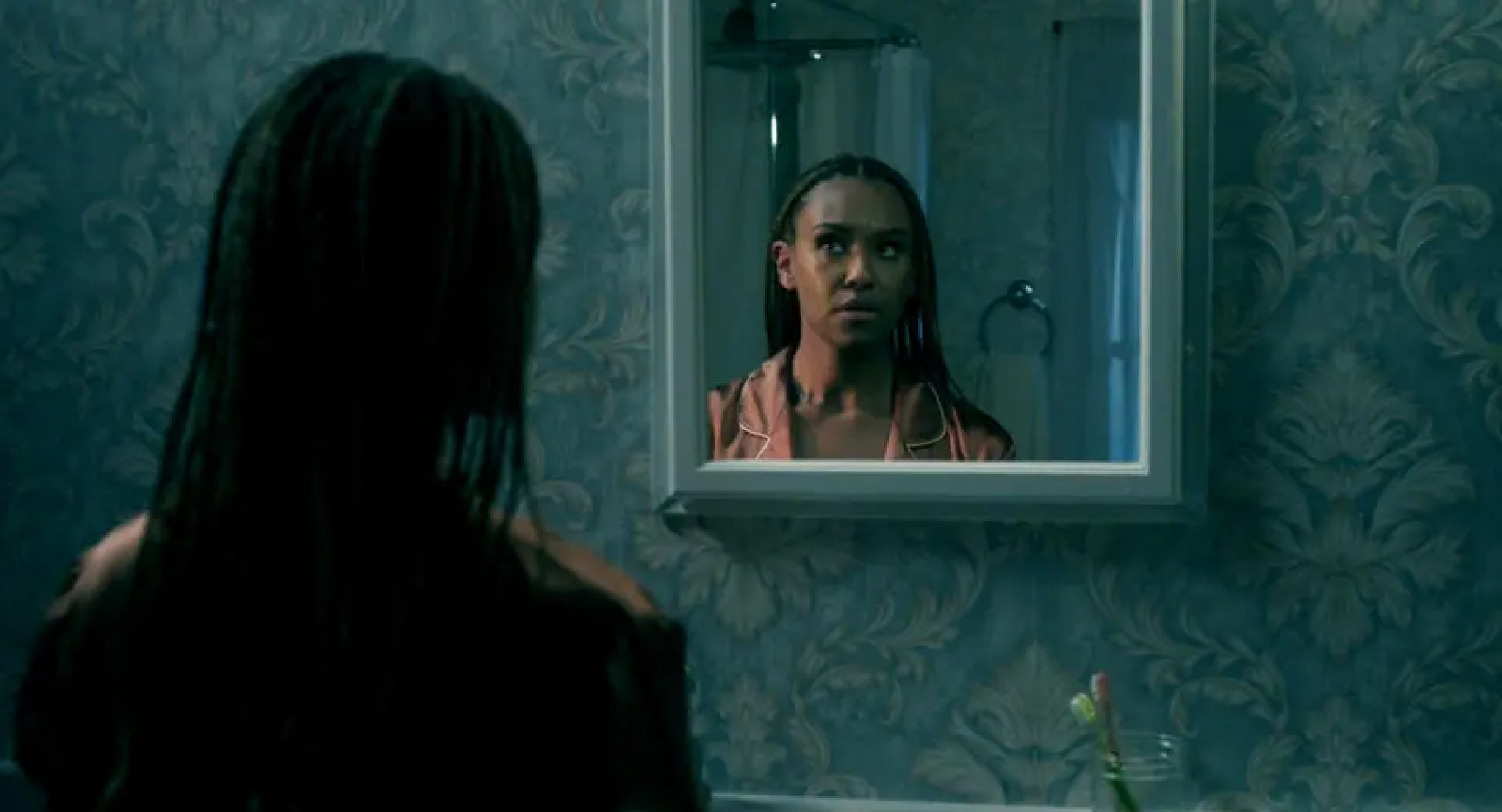Alisa Jensen, who recently got married, has swapped her busy Manhattan life for a peaceful existence in rural Connecticut. She begins to hear strange noises in the house, she can’t shake the feeling that someone is always watching her.
Boy in the Walls – Film Review
Published August 12, 2023

In a picturesque rural home, Alisa and her husband start their new life together in the opening scene of the film. The beautiful scenery serves as the prelude to Alisa’s startling sense of isolation. One of the film’s strong points is the initial setting of the mood, as the serene landscapes are artfully contrasted with Alisa’s mounting unease.
Alisa is admirably portrayed by Ryan Michelle Bathe, who sincerely conveys the character’s emotional turmoil. Alisa’s growing anxiety is given authenticity by Bathe’s portrayal, successfully evoking sympathy from the audience for her precarious circumstances. The couple’s genuine affection for one another is effectively conveyed by Bathe and Jonathan Whitesell‘s chemistry, which raises the stakes as Alisa’s mental state deteriorates.
As Alisa’s fear grows, she starts to hear strange noises coming from inside the walls of her new house. Here, the film struggles to strike a balance between overt horror and subtle suggestiveness. The auditory cues frequently jar and exaggerate the tension instead of allowing it to build naturally, which lessens the overall suspense. Although initially promising, the film’s score frequently overcompensates, playing with the viewer’s emotions rather than letting the unease grow naturally.
Chief Watkins, a local police officer played by April Telek, gives the story depth as she tries to help Alisa find the cause of her distress. Telek’s performance gives the otherwise fantastical situation a dash of realism and grounds the film in the realm of plausibility. Chief Watkins’ potential is underutilized, however, when the script fails to give her meaningful dialogue and substantial interactions.
The key themes of the flick are loneliness, mental instability, and the terrifying notion of being constantly watched. These components have the potential to delve into Alisa’s mind and produce an intensely immersive psychological horror experience. Unfortunately, the screenplay frequently chooses superficial investigation, passing up the chance to delve deeper into Alisa’s deteriorating mental state. The potential impact of the themes feels underdeveloped, getting lost in a sea of missed opportunities.
The supporting cast of Boy in the Walls includes Luke Camilleri‘s Chris and Cassandra Sawtell‘s Maya. However, they play largely incidental roles that don’t make a significant contribution to the plot or Alisa’s character growth. The audience yearns for more connection and relevance, despite the inclusion of these characters being an attempt to create a well-rounded ensemble being undermined by the absence of meaningful interactions.
As he struggles with Alisa’s deteriorating mental state, Joe, Alisa’s husband, is portrayed by Jonathan Whitesell with sincere concern and frustration. However, inconsistent character growth and a scant backstory limit the character’s depth. Because there isn’t enough background information, it’s difficult for the audience to fully understand Joe’s viewpoint, which lessens the emotional impact of his situation.
Constance Zimmer’s decisions as a director work well together to produce a visually arresting experience, especially in capturing the contrast between Alisa’s inner turmoil and the idyllic surroundings. However, the film’s pacing frequently falters, leaving scenes feeling hurried or overly drawn out. This contradiction disrupts the narrative’s flow and keeps the audience from fully engaging with the movie.
Boy in the Walls has an interesting premise, but it is sadly not translated into a suspenseful and eerie cinematic experience. Although the performances, especially Ryan Michelle Bathe’s portrayal of Alisa, show genuine commitment, the movie’s execution struggles to keep the tension up, explore its themes, and grow the supporting cast. Constance Zimmer’s attempts to combine domestic drama and psychological horror are met with conflicting results, leaving viewers with a sense of unrealized potential. Boy in the Walls ultimately struggles to overcome its flaws, leading to a film that falls squarely in the middle of the spectrum despite the admirable attempts at atmosphere and character empathy.
